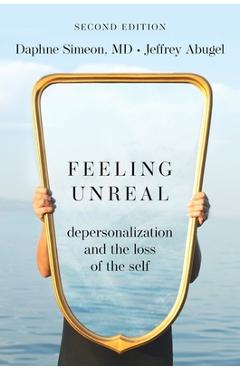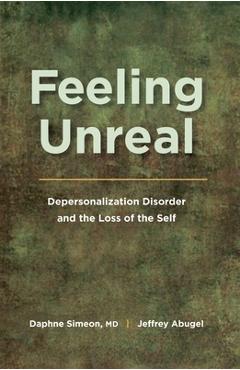Feeling Unreal: Depersonalization and the Loss of the Self - Daphne Simeon

Detalii Feeling Unreal: Depersonalization and the
libris.ro
273.8 Lei
304.22 Lei
Medical
Daphne Simeon
Feeling Unreal: Depersonalization and the - Disponibil la libris.ro
Pe YEO găsești Feeling Unreal: Depersonalization and the de la Daphne Simeon, în categoria Medical.
Indiferent de nevoile tale, Feeling Unreal: Depersonalization and the Loss of the Self - Daphne Simeon din categoria Medical îți poate aduce un echilibru perfect între calitate și preț, cu avantaje practice și moderne.
Preț: 273.8 Lei
Caracteristicile produsului Feeling Unreal: Depersonalization and the
Comandă Feeling Unreal: Depersonalization and the Online, Simplu și Rapid
Prin intermediul platformei YEO, poți comanda Feeling Unreal: Depersonalization and the de la libris.ro rapid și în siguranță. Bucură-te de o experiență de cumpărături online optimizată și descoperă cele mai bune oferte actualizate constant.
Descriere magazin:
Feelings of depersonalization-derealization, or a sense of detachment from one\'s normal sense of self, are not uncommon. People often describe being outside of themselves, or watching themselves as if in a movie, during unreal circumstances such as a car crash or other trauma. This is the mind\'s normal dissociative reaction at work. This protective system can go awry, however, and can be triggered by ongoing, lower-level stresses, childhood neglect, or certain drugs. Despite its prevalence, depersonalization is often misunderstood and is understudied compared to other conditions such as schizophrenia and bipolar disorder. First published in 2006, Feeling Unreal, Depersonalization Disorder and the Loss of the Self was the first book of its kind to delve into the mysterious phenomenon of Depersonalization-Derealization Disorder (DDD). This fully revised and updated edition describes extensive new findings on the origins of DDD, the brain science supporting the diagnosis, and cutting-edge treatment approaches. DDD is examined from medical and psychiatric perspectives, but as the authors reveal, it also emerges in literary, philosophical and spiritual investigations. Feeling Unreal thoroughly explores these different aspects in a fascinating and essential resource that is clear and accessible to medical professionals and general readers alike. Physicians, mental health professionals, families, and those who have experienced DDD themselves will find with this book trustworthy and cutting-edge information on DDD, on its history and treatment, and on its place in literature and philosophy as well as in contemporary society.

Produse asemănătoare
Produse marca Daphne Simeon

Feeling Unreal: Depersonalization Disorder and the Loss of the Self - Daphne Simeon
![]() libris.ro
libris.ro
Actualizat in 28/10/2025
326.81 Lei

Feeling Unreal: Depersonalization and the Loss of the Self - Daphne Simeon
![]() libris.ro
libris.ro
Actualizat in 05/06/2025
273.8 Lei